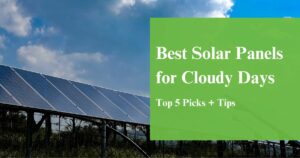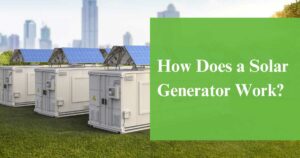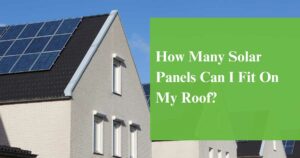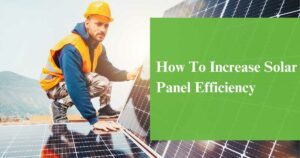Solar panels attract so many buyers because they provide clean and reliable electricity in a fuss-free manner. They require little to no maintenance to stay working as effectively as their efficiency ratings.
In some cases, however, a solar panel may start producing less electrical output than expected. As frustrating as this can be, it’s not a reason to stop using it. Instead, it’s a sign you simply need to learn about solar panel efficiency, particularly how to increase solar panel efficiency to get the best electrical output.
This article will provide you with proven tips for how to increase solar panel efficiency. But before we dive fully into that, let’s briefly discuss solar efficiency and the factors that may affect it.
What is Solar Panel Efficiency?
Solar panel efficiency is a panel’s capability to absorb solar energy and convert it into usable electricity. The higher the panel’s efficiency, the better its capability to convert sun to electricity. Solar panel efficiency is the most crucial criterion buyers consider before acquiring a solar panel from a manufacturer.
Residential solar panels have efficiency ratings from 13% to 28% maximum efficiency. Currently, the highest solar cell efficiency rating recorded is 39.5%. Irrespective of your solar panel’s efficiency rating, certain factors can affect its output. That is, whether your solar efficiency is 13% or 28%, if these factors are present, it won’t work as effectively as it naturally should. What are these factors?
Factors Affecting Solar Panel Efficiency
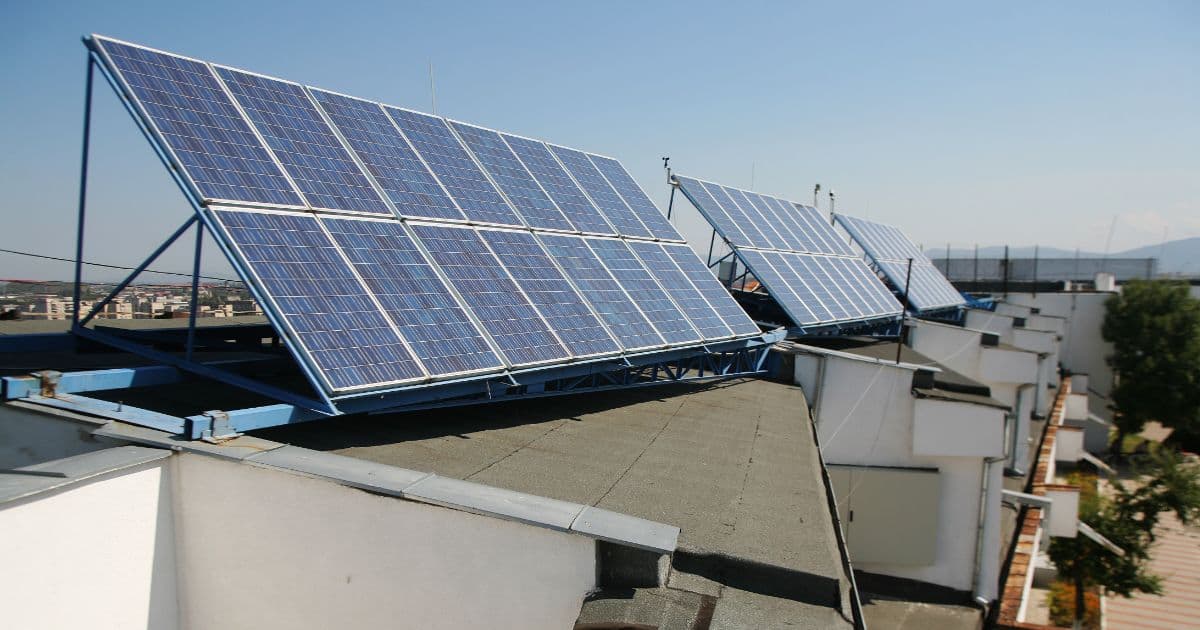
Solar panels are renowned for their efficiency, but the following factors can affect this efficiency:
1. Shade
People install solar panels on rooftops to give them direct sun exposure. If a patio shade or tree covers the solar panels, they will not absorb as much solar power as is needed to supply electricity. Shades or shadows reduce more than half the efficiency of solar panels.
If your solar panel produces a low output, this is one of the many reasons to consider as a factor. Cut or remove branches or other objects blocking your panels from having direct contact with sunlight. A professional solar installer can do this for you, or guide you through the process.
2. Weather and Climate
Solar panels work best under specific weather and climatic conditions. For example, solar panels work well during extended periods of sunshine. If there is little to no sunlight, this affects solar panel efficiency.
Oddly enough, solar panels also work well when there’s snow, provided the panel’s surface isn’t heavily covered with the snow. Snow has remarkably high solar irradiance and anti-soiling properties that help the panel get and retain solar power.
3. Roof Orientation and Angle
The positioning of your solar panel can also affect its efficiency. Since homes differ in design and architecture, a particular roof orientation or angle may not be favorable for the proper installation of solar panels. The roof should ideally face south to derive the best efficiency from solar panels.
The slant of the panel should be 30 to 40 degrees. Failure to establish this orientation can block the solar panel from the sun, thereby depleting its efficiency.
Now that you know some factors that can affect the efficiency of your solar panel, it will be easier to work toward increasing the efficiency of your solar panel.
Below are some helpful tips you should prioritize.
How to Increase Solar Panel Efficiency
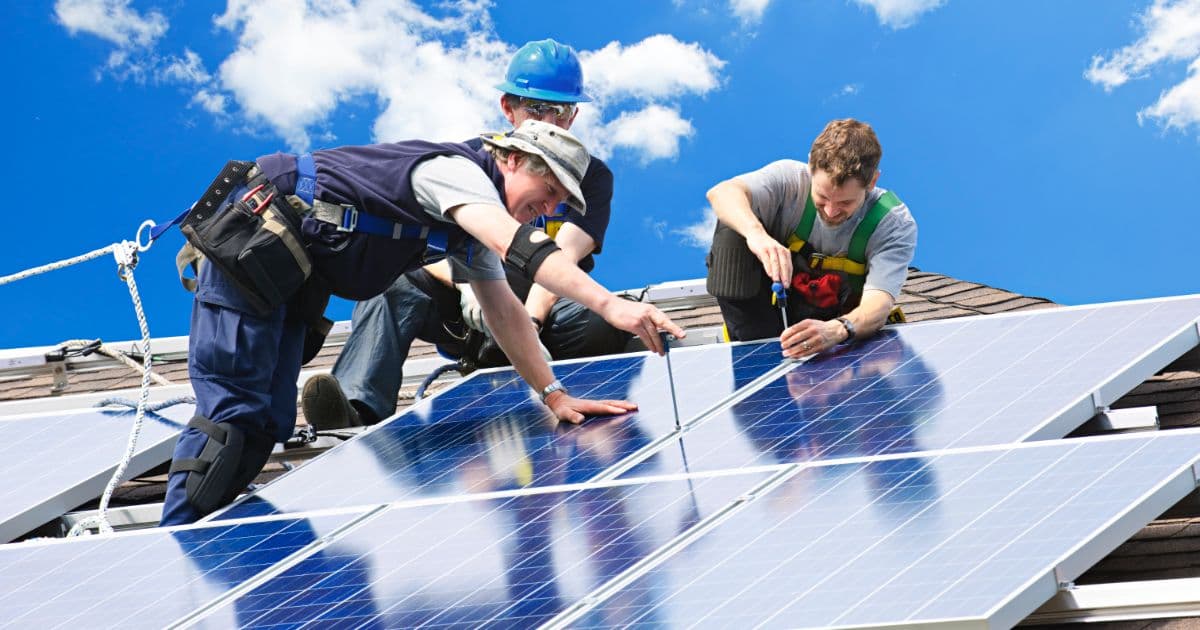
There are several ways to learn how to increase solar panel efficiency. Try some of the following proven tips:
1. Buy High-Quality Solar Panels
Many people get low output from photovoltaic panels because they invest in low-quality cheap ones. The type of photovoltaic cells you purchase determines the type of efficiency and output you’ll get.
Monocrystalline solar panels have the highest efficiency of the three types of photovoltaic cells. It will give you the desired level of efficiency and durability. While it may cost more than the rest, investing in solar panels that offer good value for money is generally better.
2. Hire a Professional Installer
Orientation and angle are significant factors that affect the efficiency of solar panels. To get them right while enjoying maximum energy production, you’ll need the services of a professional installer. Whether you’re in the southern hemisphere or northern hemisphere, professional installers know the exact angle and orientation for your solar panel to receive optimal sunlight.
Spacing is an extension of the said positioning that professional installers also will be aware of. Professional installers can give the panels enough space to allow them to take adequate sunlight without overheating, which may negatively affect the absorption process of sunlight and conversion to electrical power.
3. Maintenance Practices
Many people love solar panels because they require the bare minimum when it comes to maintenance, but there still is some upkeep to consider. Solar panels are typically fixed in a spot, so the surface remains open to dust and other dirt that may interfere with the sun’s contact, thereby reducing efficiency.
To increase your solar panel efficiency, observe solar panel maintenance practices, ideally two to four times per year. Doing this will also increase the panels’ durability, allowing you to enjoy it for as long as it lasts.
4. Use Higher Energy When Sun Peaks
Solar panels work their best when the sun peaks. So, to increase efficiency, you must use solar energy when it’s at its strongest. Use appliances one at a time when the sun isn’t up and if you must use multiple appliances simultaneously, try to do so when the sun is at its peak.
For instance, if you’re using the dishwasher, ensure the vacuum cleaner is not on at the same time. Doing this leaves you with enough energy at night and when there’s no sun.
5. Invest in an Energy Storage System
Another effective way to increase the efficiency of your solar panel is to invest in an energy storage system, which operates by receiving electricity from the solar panel, storing the energy as a current, and releasing it when needed. Doing this takes some of the burden off the solar panels.
When there’s less burden on solar panels, they work more efficiently, producing a high electricity output. All you’re required to do is to charge the system adequately so that it stores sufficient energy for the time they are needed.
6. Monitor Energy Output with Energy Management Software
While this might be a little high-tech for the average consumer, it’s a viable and rewarding investment. Monitoring the output of your solar modules using solar cell technology is a good way to manage it because it automatically enhances efficiency. Monitoring any decreases in energy levels can help you to make timely arrangements to correct it before it gets worse or irreversible.
Depending on your budget, you can buy a single-axis or a dual-axis model. You can also invest in solar trackers, which allow you to concentrate the sun’s radiation on the solar panel. You open your panels up to large amounts of sunlight by using this device, and with that, they produce more electricity.
Final Words
We hope this article on how to increase solar panel efficiency has been helpful. You will increase the efficiency of a faltering solar panel if you follow the tips mentioned in this post. While some of them require you to spend money, at the end of the day, you’ll save money in the long run with more efficient solar panels.

